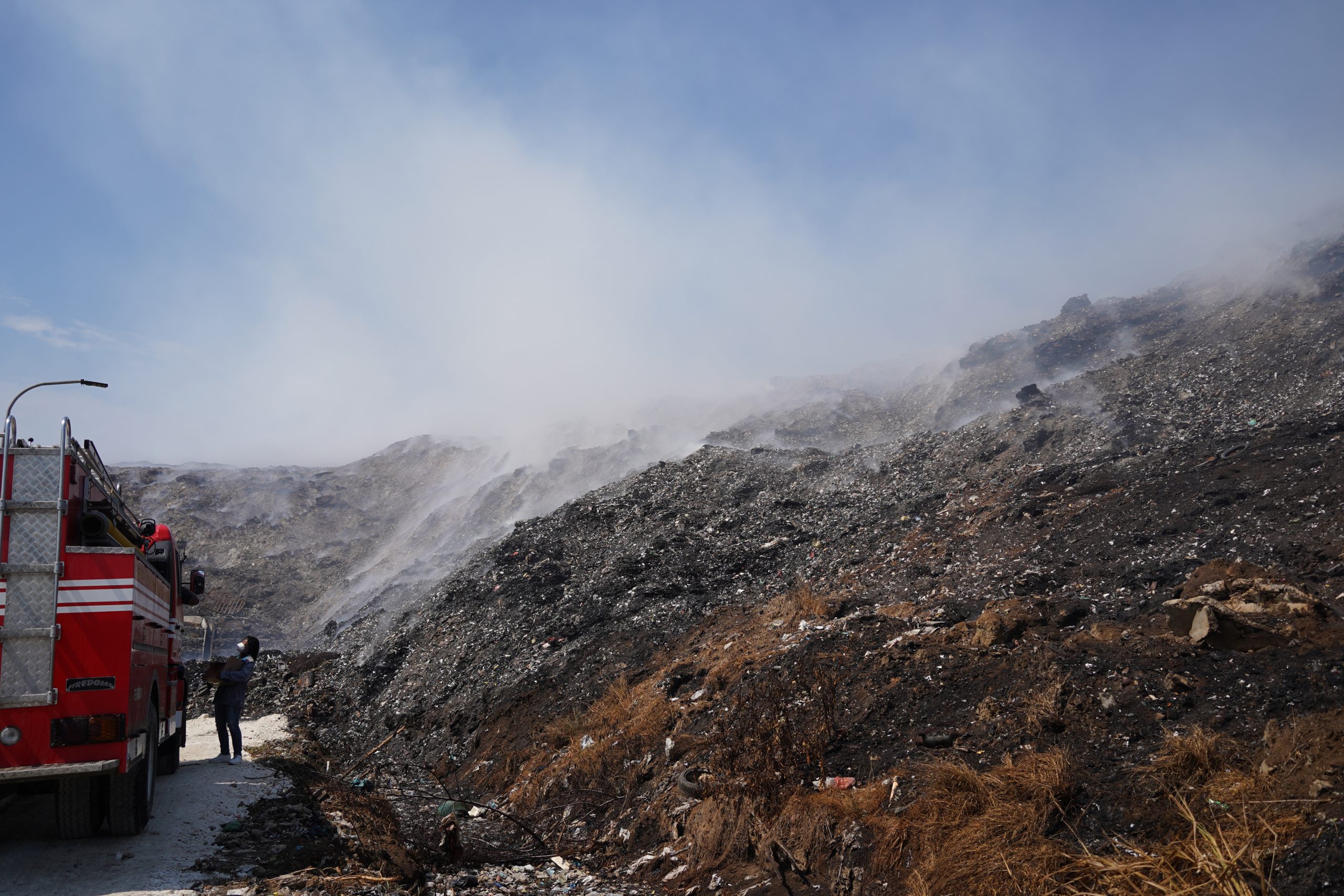Introduction:
Bali, known for its breathtaking landscapes and vibrant culture, is currently facing a crisis that threatens both its environment and the health of its residents. TPA Suwung, a 32-hectare rubbish tip located in the heart of Bali, has been engulfed in flames for an unprecedented 30 days, raising serious concerns about the environmental impact and the potential health hazards posed by this extended blaze.
The Crisis Unfolds:
The TPA Suwung landfill, situated near the island’s capital, Denpasar, is a critical waste management site that handles a significant portion of Bali’s municipal waste. The fire, which began unexpectedly, quickly escalated into a massive inferno, shrouding the area in thick, acrid smoke. Efforts to contain the blaze and mitigate its impact on the surrounding environment faced numerous challenges, including the vast size of the landfill and the composition of the waste, which includes plastics, organic matter, and other materials.
Environmental Impact:
The environmental consequences of the TPA Suwung fire are alarming. The combustion of plastics and other synthetic materials releases harmful toxins and pollutants into the air, soil, and water sources. The smoke from the fire contains particulate matter and hazardous gases, posing a serious threat to air quality. The long-term effects on local ecosystems and biodiversity remain uncertain but could be profound, as the fire releases pollutants that may find their way into rivers and oceans.
Health Concerns:
Beyond the environmental impact, the health of residents in the surrounding areas is a major worry. Prolonged exposure to the smoke from the landfill fire can lead to respiratory issues, aggravate pre-existing conditions, and cause discomfort for vulnerable populations such as children and the elderly. Authorities have issued warnings and guidelines to minimize exposure, but the persistent nature of the fire makes it challenging to completely mitigate the health risks.
Government Response:
The Indonesian government, along with local authorities in Bali, has mobilized resources to combat the fire and address its consequences. Firefighters, waste management experts, and environmental agencies are working tirelessly to bring the blaze under control and assess the damage. Additionally, evacuation plans and emergency shelters have been established to protect residents from the immediate health risks.
Community Initiatives:
The crisis has also prompted local communities and environmental organizations to rally together in support of those affected. Volunteer groups are providing assistance to evacuees, distributing masks to protect against the smoke, and organizing cleanup efforts to address the aftermath of the fire. BaliLife, in collaboration with various NGOs and community initiatives, has played a crucial role in supporting the trash pickers affected by the crisis.
BaliLife has partnered with different NGOs and community initiatives to provide practical aid to the affected communities. Their initiatives include distributing ready meals to trash pickers who have faced challenges in earning a living due to the crisis. In an inspiring effort, BaliLife has managed to distribute over 18,000 ready meals over the course of 30 days, offering sustenance to those who are grappling with the consequences of the landfill fire.
Moreover, BaliLife has facilitated medical check-ups for the trash pickers to address any health concerns arising from prolonged exposure to the smoke and other environmental hazards. This comprehensive approach not only addresses immediate needs but also emphasizes the importance of holistic support for communities facing environmental crises.
Conclusion:
The 30+ day blaze at TPA Suwung in Bali is a stark reminder of the interconnectedness of human activities and the environment. While the immediate focus is on extinguishing the fire and mitigating its impact, the incident has also showcased the resilience and solidarity of communities coming together in the face of adversity. BaliLife’s proactive involvement in providing aid and support to the affected trash pickers exemplifies the power of collective action in times of crisis. As Bali grapples with the aftermath of this environmental disaster, it is essential for the global community to learn from such experiences and work collaboratively towards sustainable solutions that protect both the environment and the well-being of those most vulnerable.




